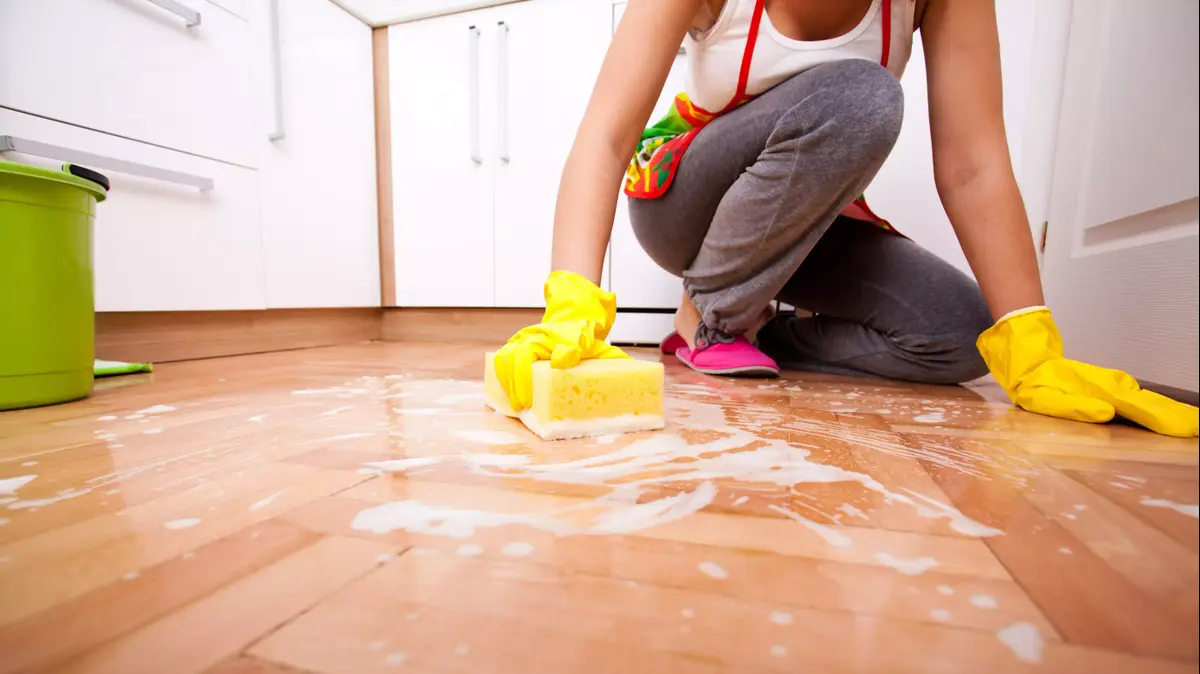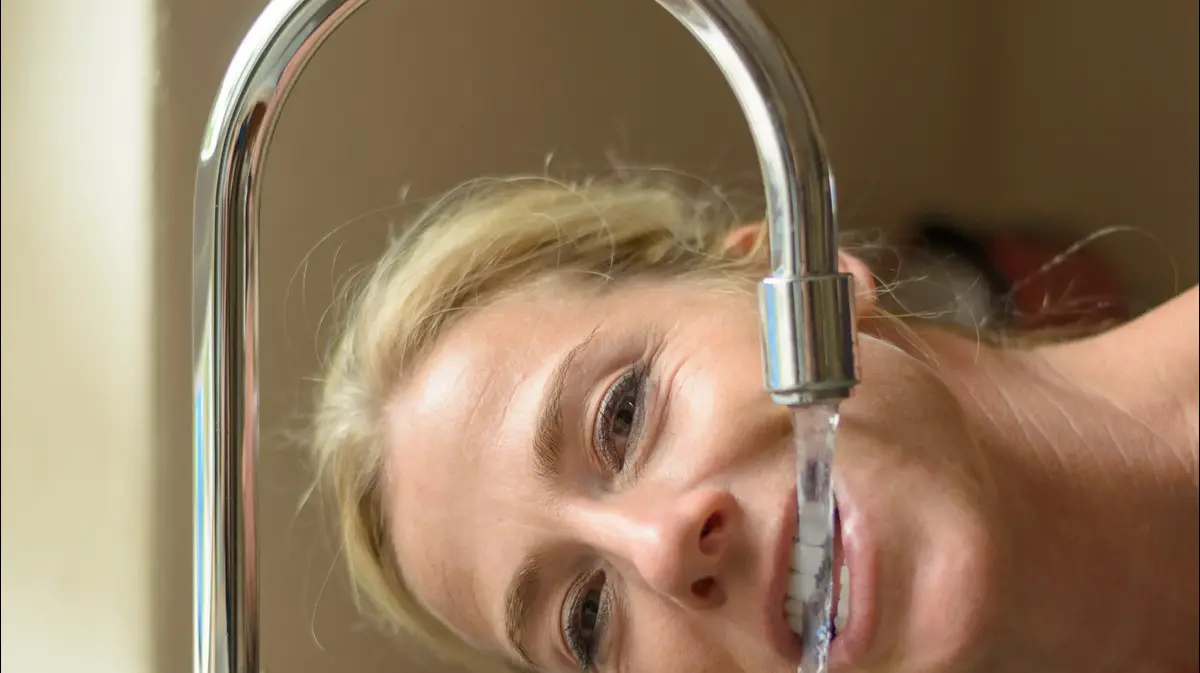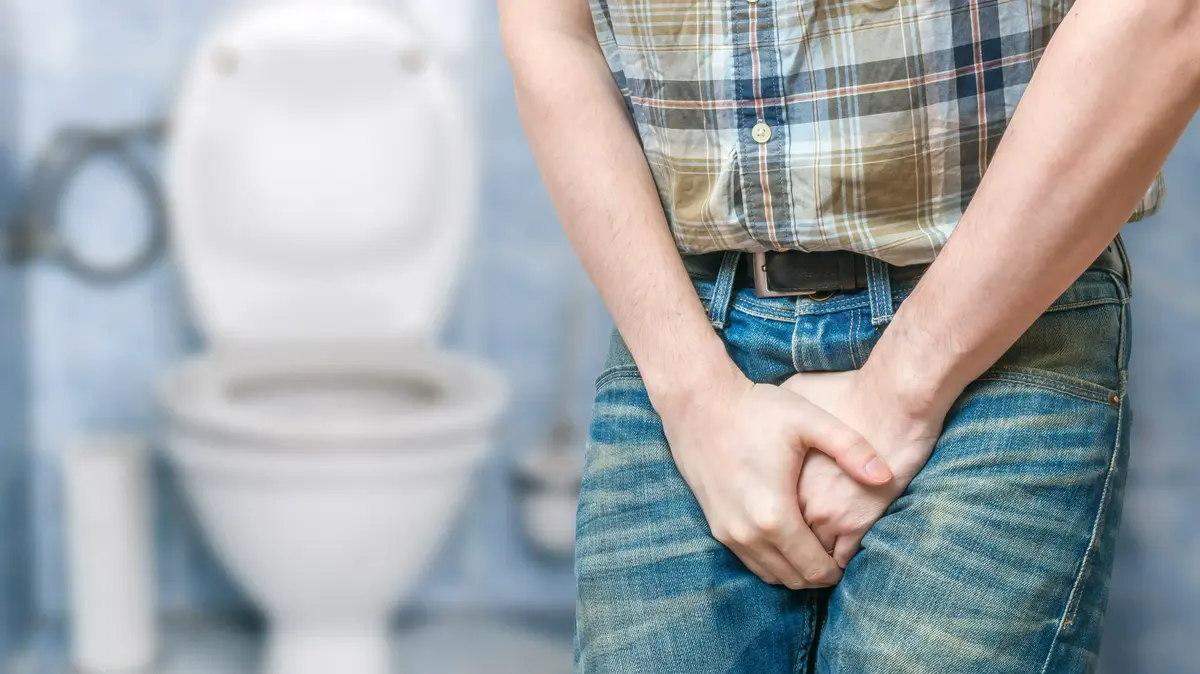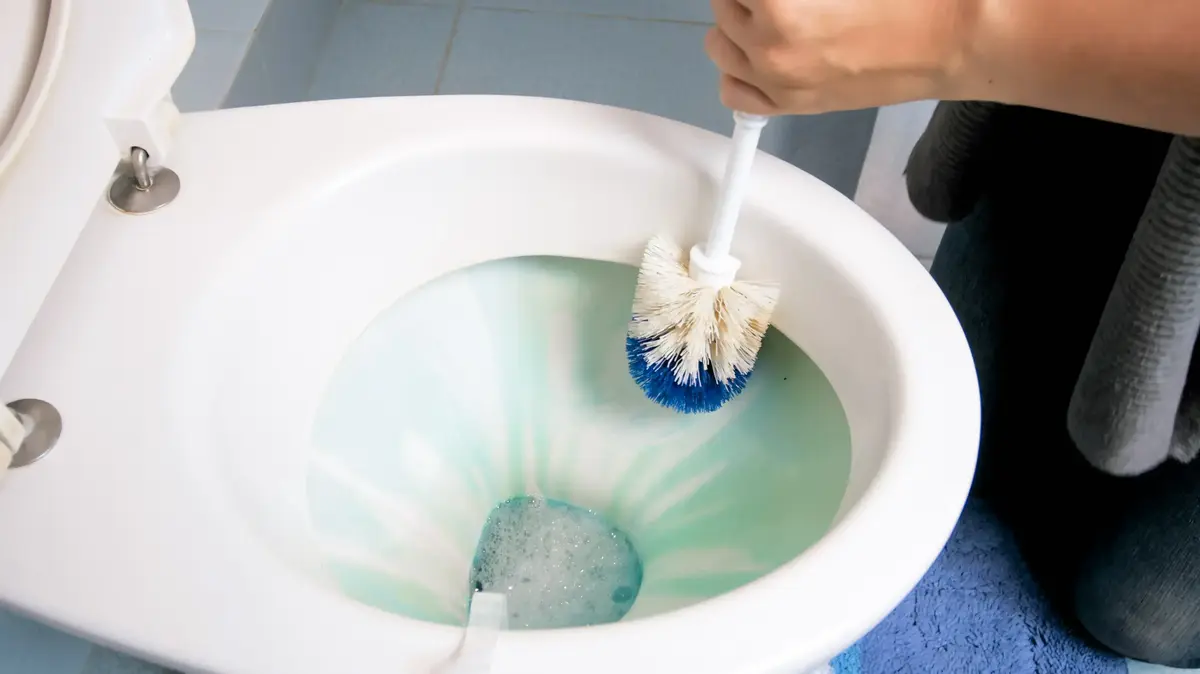Of money
consumption
Without chemicals: clean the house and keep healthy
Recently, you can find more and more network influencers in Israel and abroad who post videos with tips for cleaning the house using materials that will not harm health and the environment. So what can you learn from them ahead of the holiday?
Tags
Cleanliness
Cleaners
Influencers
Sapphire Polk, Angle
Friday, March 26, 2021, 00:00
Share on Facebook
Share on WhatsApp
Share on general
Share on general
Share on Twitter
Share on Email
0 comments
Cleaning (Photo: ShutterStock)
Passover is here - and everyone knows what it means: shutters, panels, kitchen drawers - all need to be cleaned to go through the cleaning orders that take place throughout Israel.
While some people like the strong and stinging feeling of cleanliness, and are willing to immerse in chemicals up to the elbow, in recent years there has been a growing awareness of cleaning with less harmful substances to health and the environment, mainly due to the fact that detergents may contain many substances that can harm human health (and environment).
In recent years, the love for cleaning has also spread to the virtual spaces, where a new breed of network influencers has been created, "cleaning anchors" if you will, that present tips and rules for winning cleaning.
Among these new stars there are also quite a few that focus on cleanliness in methods that are better with man and the environment.
Can this new and growing trend contribute to improving our environment and personal health?
More on Walla!
For sale: Rainforest, please contact Facebook
To the full article
More on Walla!
Why are we so addicted to cordless vacuum cleaners?
Special for Passover: Where will you find the cheapest basket of detergents?
This way you will overcome pain in the hip joint and avoid surgery
"Do not read the instructions for use"
"Usually, Israelis do not read the instructions for use on the products and they mix substances that must not be mixed, even natural substances such as vinegar, or lemon juice, together with chemicals - and it is impossible to know what the chemical reaction will be."
The damage from overexposure to hazardous substances, which are found in detergents that are common in almost every household, can in extreme cases lead to a real health hazard.
The damage is varied and can range from poisoning with varying degrees of severity, eye damage, skin damage including burns or rashes, allergic reactions of varying severity, respiratory difficulties and more.
According to American studies, many users are unaware that uncontrolled combinations of different substances can be particularly dangerous, such as combining detergents that contain bleach or those that contain bleach and those that contain ammonia, or the use of detergents that contain natural fragrances that may release formaldehyde. Toxic in the presence of ozone gas from an external source (air pollution) or intra-domestic.
"Usually, Israelis do not read the instructions for use on the products and they mix substances that should not be mixed, even natural substances like vinegar, or lemon juice, along with chemicals - and it is impossible to know what the chemical reaction will be," says Dr. Hagit Olnovsky, management consultant Health and environmental risks. "Beyond that, there are lots of substances that need to be diluted with water, like bleach, and most of the time it is not done."
Over time, growing awareness of the dangers inherent in certain detergents has led many consumers to shy away from alkali, hydrochloric acid or caustic soda. These include cold cleaning products for ovens, toilet cleaning products, carpet and upholstery sprays and descaling tablets
, some of which choose to reduce the amount of detergents they use, purchase materials marketed as "environmentally friendly", or protect themselves with rubber gloves or face masks while For others, the solution included more dramatic steps, such as switching to ingredients like salt, vinegar, lemon, olive oil - not only to make a salad dressing, but also to clean the house.
More on Walla!
Doing a short on water - will it help the farmer or the capitalist?
To the full article
Clean for the followers
As mentioned, the new trend was soon adopted by network influencers as well.
Today you can find a whole category of YouTube anchors called clean-fluencers, which devote them all to the act of cleaning, polishing and brushing.
Well-known and popular channels in the field receive huge numbers of followers, ranging from hundreds of thousands to millions.
One of the best-known stars in the field is the Canadian Melissa Maker, who makes sure to upload content that is mostly about cleaning using natural non-toxic substances, such as vinegar.
Micro runs a successful YouTube page as well as a website with a particularly popular corner known as "Celebrity Cleaning Confessions" - where she interviews top celebrities regarding their cleaning habits.
Micro has even written a virtual book that is sold on its official website and it continues to publish recipes for detergents that can be easily prepared, using ingredients found in almost every household, such as baking soda, lemon juice or vinegar, and with very little harm to health and the environment.
View this post on Instagram
A post shared by simabitton Sima Bitton (@simabitton)
Sima's secret material
In Israel, too, the first buds of the alternative cleaning trend can be seen today.
For example, the influential Sima Bitton (chef, facilitator and owner of a catering company that also operates especially popular Instagram and Facebook pages), has recently uploaded quite a few demo videos on cleaning operations using naturally brewed ingredients, such as using homemade vinegar and warm water for deep cleansing and prevention. Mold in the washing machine.
The excerpts gained immense popularity and reached hundreds of comments and shares.
The phenomenon is very present in Israel also in many participating Facebook groups such as laundry and cleaning addicts, cleaning patients - the official group, or ideas and tips for cleaning the house, where tens of thousands of Israeli followers advise each other on cleaning issues, warn against combining hazardous materials and even share natural cleaning tips. To the environment and also to the respiratory system.
Clean the house, but pollute the environment
Excessive use of detergents has not only health but also environmental consequences. According to various studies, home cleaning materials, dyes and various perfume products have in recent years become one of the main sources of indoor air pollution in the world. Volatile organic compounds (VOCs) found in some detergents are part of a group of organic substances that contain carbon atoms and are characterized by high vapor pressure, which causes them to boil and evaporate in air already at room temperature. Volatile organic compounds are also known as soil contaminants when the substances that evaporate from the contaminated soil (usually as a result of industrial pollution, or by fuels) accumulate in basements, parking lots and ground floors.
"In the past there was a green label awarded to products by the Standards Institute and the Ministry of Environmental Protection, but today that does not happen," Olnowski adds. "In general, it can be assumed that using measured and accurate amounts of ingredients will save us money as consumers - and also be environmentally beneficial. If we use a quantity of dish soap the size of a pea grain for example, usually this is all we need, we can buy 12 - so we can reduce consumption and contribute to the environment. "
In the shadow of the Passover cleaning fever, there are those who will see a reduction in the use of conventional detergents no less than a bitter cut. What can still be done to feel the beloved sense of cleanliness, without causing serious environmental and health damage? "Surveys conducted in Israel show that Israelis have a tendency to overdo it with the amount of detergents, because they like the smell," says Olonovsky, offering alternative solutions: "You can slice a lemon or orange that will spread good smells at home, or plant a mint, rosemary or lavender pot that will do the job." It is better in terms of spreading the smell than any detergent on the market. "
The article was prepared by Zavit - the news agency of the Israeli Association of Ecology and Environmental Sciences.
Share on Facebook
Share on WhatsApp
Share on general
Share on general
Share on Twitter
Share on Email
0 comments








